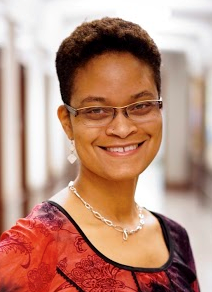Providing a Safe Place for All Patients
January 17, 2020
By Divya Williams

Before becoming a PA, or even knowing about the profession, Tonia Poteat, PhD, MPH, PA-C, DFAAPA, knew she wanted to provide care to people living with HIV. “I was really interested in being a healthcare provider but didn’t know how to do that without being a physician or a nurse until I met a PA. She really encouraged me to look into the training and what you are able to do as a PA,” Poteat says. “I liked that you could finish without spending a thousand years in school, and I liked team-based practice. Now, 25 years later, it turned out pretty well.”
Poteat is now an Assistant Professor of Social Medicine at University of North Carolina (UNC) Chapel Hill as well as core faculty in the UNC Center for Health Equity Research. She also teaches a seminar for second-year medical students on sexual and gender minority health, supervises students in a student-run gender affirming care clinic, and spends one a day week in the infectious disease clinic at UNC caring for people living with HIV. Poteat has focused her research, teaching, and clinical practice on HIV and LGBT health, with particular attention on transgender health disparities.
Reaching a glass ceiling
Poteat’s path to her current role wasn’t one she predicted for herself. Looking back on when she decided to further her education, she says it was her mother’s advice that pushed her to make the decision.
In her mid-30s, Poteat was doing part-time clinical work and part-time public health work. “I was trying to imagine if I could see myself doing that same job for the next 20 years, and I couldn’t. And I felt myself bumping up against this glass ceiling,” she says. “So I knew I needed to get more education to be able to do something that I wanted to do, which was conduct research on my own.”
Poteat’s mother had gone back to school in her late 50s to get her bachelor’s degree, and her advice to her daughter was, “You’re going to get older one way or the other – you can either get older working on something you want to have, or you cannot.” Poteat says the advice was so practical and brilliant, it’s what helped her decide to go back to school. “So I started the PhD program in public health in my late 30s, and that’s how I got into research.”
